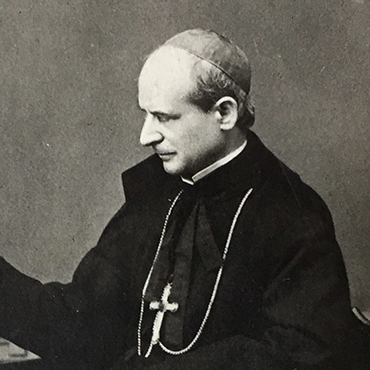Zini’s real name was Raffaello and he was born in Florence in 1825, the son of a grocer. From a young age he studied with the Piarists of San Giovannino, who were close to where he lived with his family. He entered the Order as a novice and studied with Stanislao Gatteschi, Numa Pompilio Tanzini and Giovanni Antonelli. Before he became a priest, he was trained, first at the Collegio Tolomei in Siena as a teacher of Latin grammar and then as a lecturer of mathematics and philosophy at the Collegio dei Nobili in Urbino, where he took his vows in 1848.
The following year he held a post in geometry and philosophy at Castiglion Fiorentino for a short period, before starting as a teacher of philosophy and later also of history at the Scuole Pie of San Giovannino, where he had studied as a child and where he would remain for a long time, first as principal of the Casa di San Giovannino, and then headmaster of the school. In 1878 he was very deeply affected by the closure of the school, caused by a financial crisis of the municipality of Florence, which was no longer willing to provide finance and venues.
In reorganising the library at San Giovannino he requested a dispensation from the restrictions of the Index of Banned Books, because he had to handle books that were otherwise prohibited. In 1872 he became provincial head of the Piarists in Tuscany, and in 1876 he opened the new college in the Badia Fiesolana. In 1889 he was appointed Archbishop of Siena by Leo XIII, a mandate that he accepted reluctantly. Soon afterwards, together with Celestina Donati, he founded the order of the Suore Calasanziane.
Through Tommaso Pendola, with whom he had maintained close relations since his early days in Siena, he had got to know Antonio Rosmini, and the latter’s thoughts shaped his teaching in the long years when students in San Giovannino included Raffaello Caverni, as well as Giosuè Carducci and later Giovanni Pascoli. He died in Siena in 1892.

